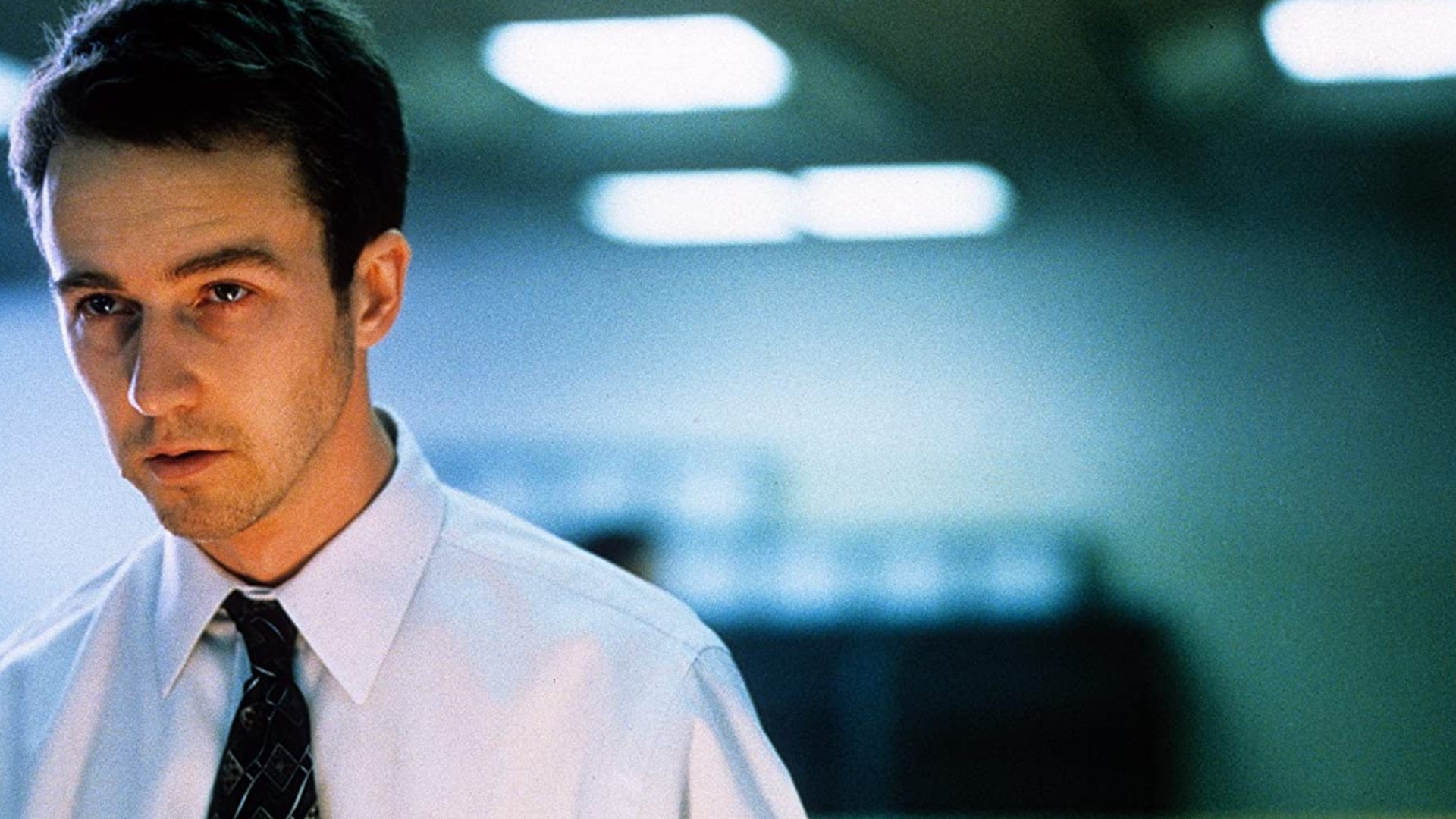Fight Club has its original ending restored in China after censorship backlash
The majority of the cut scenes have been restored

After news broke of Fight Club's ending being censored for its release in China, the Chinese streaming service Tencent has reversed its decision – mostly.
In Davod Fincher's 1999 adaptation of Chuck Palahniuk's novel, the movie ends with the unnamed narrator (Edward Norton) killing his imaginary alter ego Tyler Durden (Brad Pitt). He and Marla Singer (Helena Bonham Carter) then stand and watch as buildings explode as part of Durden's Project Mayhem.
However, Vice broke the news last month that no buildings explode in the new ending and the scene is replaced by text that reads: "Through the clue provided by Tyler, the police rapidly figured out the whole plan and arrested all criminals, successfully preventing the bomb from exploding. After the trial, Tyler was sent to a lunatic asylum receiving psychological treatment. He was discharged from the hospital in 2012."
In total, 12 minutes were cut from the movie's ending, and now 11 of these have been restored. The missing minute is reportedly mostly comprised of brief sex scenes between Tyler and Marla.
However, Palahniuk previously stated that the censored ending actually brought the movie closer to his book, saying: "The irony is that the way the Chinese have changed it is they’ve aligned the ending almost exactly with the ending of the book, as opposed to Fincher’s ending, which was the more spectacular visual ending. So in a way, the Chinese brought the movie back to the book a little bit."
Fincher's next movie is The Killer, which will follow the life of an assassin and will be released on Netflix. While we wait for that to arrive on the small screen, check out our list of the best Netflix movies that you can watch right now.
Bringing all the latest movie news, features, and reviews to your inbox
I’m an Entertainment Writer here at GamesRadar+, covering everything film and TV-related across the Total Film and SFX sections. I help bring you all the latest news and also the occasional feature too. I’ve previously written for publications like HuffPost and i-D after getting my NCTJ Diploma in Multimedia Journalism.


